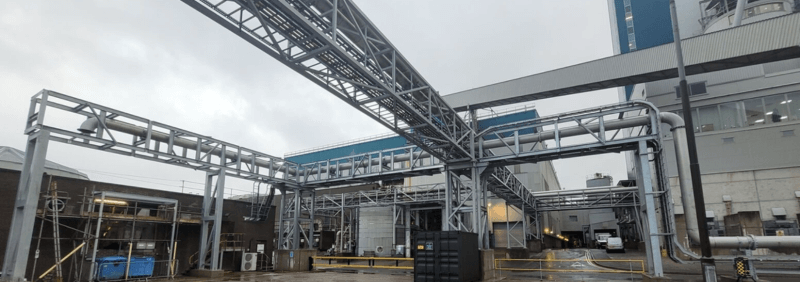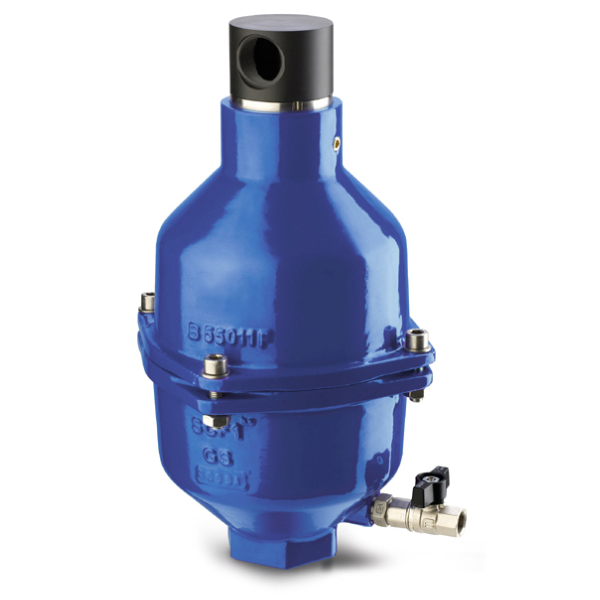Air Valves & Hydraulic Analysis Ensure Pumping Efficiency

Pipelines installed on pre-established industrial sites often have to fit around existing infrastructure – leading to rises, falls, bends and other obstacles that can adversely affect a system’s hydraulic flow efficiencies.
Installing valves to control the intake and discharge of air can balance issues of rapid pressure changes and accumulation, but only with considered positioning.
Hydraulic analysis takes the guesswork out of air valve positioning by enabling engineers to predict potential areas of concern that could lead to system failure, which was essential for a recent T-T Flow client.
The Problem
One of Europe’s largest paper manufacturers, with annual sales exceeding £400m, came to our experts for air valve positioning assistance.
They were looking to install a new industrial effluent processing plant and storage facility on a site that would see waste pumped 500m via a network of overhead steel pipes.
With needing to accommodate a pre-existing layout and the distance the medium was to be pumped, there was a definite risk of flow inefficiencies and system failures that our team needed to manage effectively.
The Solution
Our knowledgeable engineers worked closely alongside the principal contractor to conduct a thorough system-wide hydraulic analysis. Using the results of this simulation, they specified and configured the correct size air valves in the most optimal position.
We chose our four function wastewater air valves for the application due to suspended solids on the media, supplied from our large stockholding at T-T HQ. These valves –
- Discharge large volumes of air during charging – this prevents air from becoming trapped during the pipes’ initial filling, as these pockets cause pressure fluctuations and lead to operational inefficiencies.
- Deploy a rapid fill protection float when air discharge exceeds critical rates – after a certain point, air discharge can cause rapidly moving water columns to form, with this sudden acceleration generating pressure transients that can cause damaging water hammer. The valve uses a free-floating float to slow the velocity of the oncoming water and prevent columns from forming. Learn more about this phenomenon here.
- Control the release of naturally accumulating air – air gathers within pipe systems and valve chambers during regular operation, often caused by changes in temperature, viscosity and dissolved gasses in the pumped media.
- Intake large volumes of air during drainage – when a pipeline drains without suitable air intake to fill the void left by the pumped media, a vacuum can form and cause significant structural damage to the pipes. Intaking large quantities of air at this time prevents a vacuum from forming and structural damage from occurring.
Several full-bore flanged and compact wastewater air valves were supplied to the project, manufactured from epoxy-coated ductile iron for a lightweight and corrosion-resistant solution.
The valves’ directly acting stainless steel primary float is designed without linkages that are prone to failure from corrosion, while the independent rapid fill protection float is manufactured from precision machined solid polypropylene. The addition of a sloped chamber profile stops waste material from building up and inhibiting reliable free-float movement.
From the hydraulic analysis our engineers recommended that smaller compact air valves be grouped in areas of limited access or height restraints, ensuring optimal flow and minimised energy consumption across the whole system without the need for human intervention.
Expert Analysis for Optimal Results
Hydraulic system analysis and careful positioning based on the simulation results meant our engineers could provide the most optimal air valve configuration for the new pipeline, providing a reliable system that achieves its maximum flow efficiency.
Contact a member of our team to find out how our valves can optimise your pumping system by calling +44 (0)1630 647200, emailing ttflow@ttpumps.com or completing an online enquiry form.
Related Projects
Case Study
Synopsis

